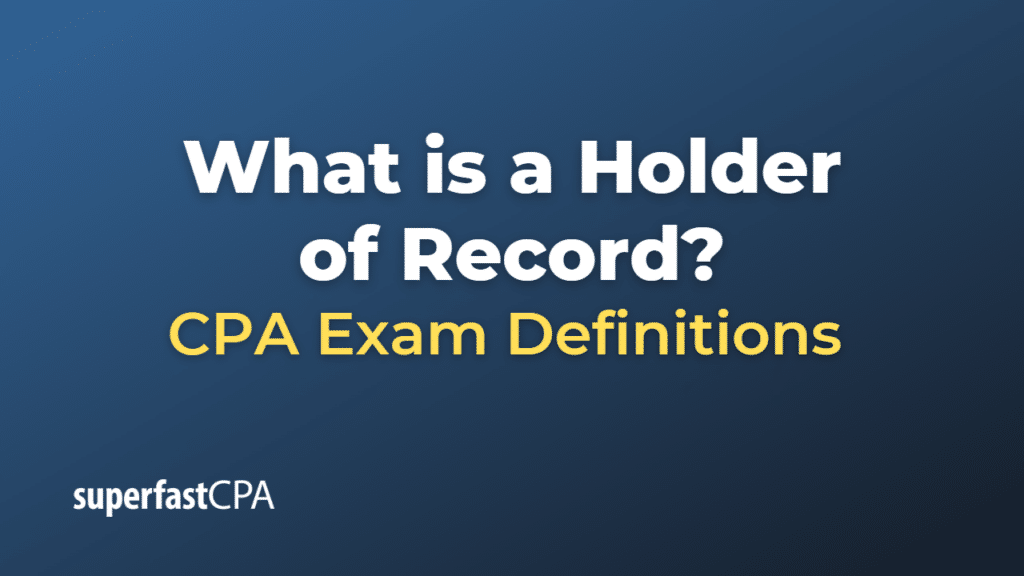Holder of Record
The holder of record, also known as the shareholder of record, is the person or entity that is officially registered as the owner of an asset (such as stocks, bonds, or property) on the books of the issuing entity at a particular point in time.
For stocks, the holder of record is recognized as the legal owner of the shares and is the one entitled to any dividends issued, voting rights, and other benefits or rights associated with share ownership.
The holder of record is determined on the “record date,” which is set by the issuing company. For example, if a company declares a dividend payable to shareholders of record as of a specific date, anyone who is officially listed as a shareholder on that date will receive the dividend.
It’s important to note that the holder of record might not always be the beneficial owner. If shares are held in a brokerage account, for instance, the brokerage firm may be listed as the holder of record (in “street name”), while the investor is the beneficial owner who has the rights to any dividends or voting.
Example of a Holder of Record
Let’s look at an example involving a company issuing a dividend.
Suppose Company XYZ announces that it will pay a dividend to shareholders of record as of June 1, 2023. This means that June 1, 2023, is the “record date.”
Now, let’s imagine two investors, Alice and Bob.
Alice has owned 100 shares of Company XYZ for several months, and she continues to hold those shares on June 1. Therefore, Alice is a holder of record for those 100 shares on the record date, and she will receive the dividend for those shares.
Bob, however, only buys his 100 shares of Company XYZ on June 1. Depending on the timing of his purchase and the specifics of his brokerage firm’s processes, Bob may not officially become the holder of record by the close of business on the record date. Therefore, he may not receive the dividend.
This example illustrates the importance of the record date in determining who is officially recognized as the owner of an asset and is therefore entitled to any associated benefits or rights. It also highlights the distinction between the execution of a transaction and the official recording of ownership, which can take a few days due to the settlement process.













